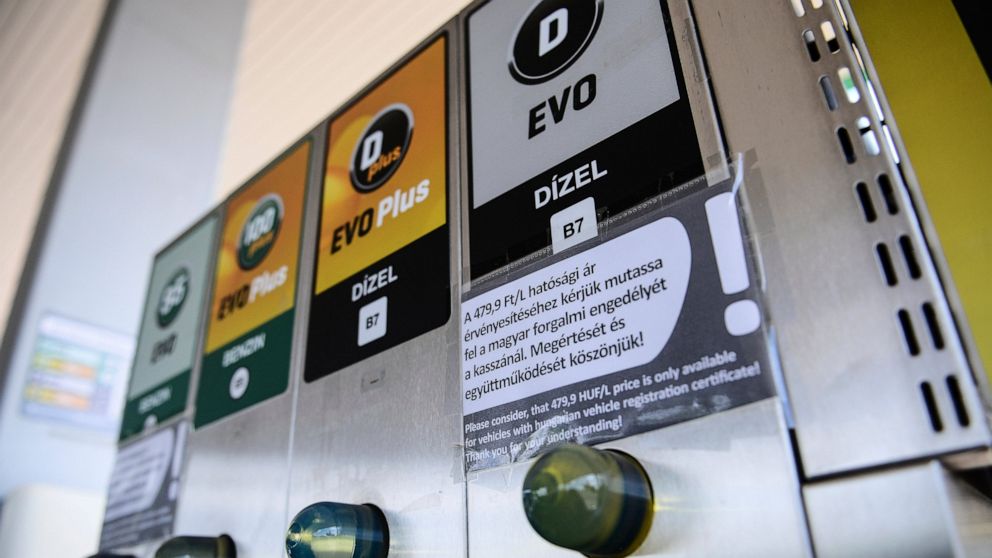BUDAPEST, Hungary — Hungary has discounted the price of gasoline at the pump. But not if you have a foreign license plate.
It’s also taxing what it calls “extra profits” of industries including airlines, with carriers like Ryanair and EasyJet increasing ticket prices to cope.
The nationalist government argues that it’s trying to ease an economic downturn and the highest inflation in nearly 25 years amid Russia’s war in Ukraine, but the unusual moves by the central European country are alienating companies and threatening a renewed standoff with the European Union.
With these interventionist measures, which also include price caps on some food items, right-wing populist Prime Minister Viktor Orban is jettisoning the conservative financial model of deregulation and free market capitalism.
The policies have helped lower some prices for Hungarians, but some multinational and domestic companies say they are damaging their bottom lines and competitiveness. Meanwhile, the EU has raised questions of whether the policies comply with its rules, following clashes between the 27-nation bloc and Hungary over rule-of-law concerns and corruption.
The EU takes issue with a requirement introduced in May that drivers with foreign license plates pay market prices for fuel at Hungarian gas stations, blocking them from purchasing gas and diesel that has been capped at 480 forints ($1.25) per liter since November.
Representing a price hike of as much as 60% for drivers with vehicles registered in other countries, the EU asked Hungary to scrap the requirement until it could determine if it complies with the bloc’s rules or face legal action, calling it “discriminatory.”
The fuel price cap gave Hungary among the lowest fuel prices in the EU, leading to fuel tourism and increased demand that caused lagging supply and shortages.
“The government had to act, but instead of opting for a more market-friendly solution, they have opted for something which goes straight against the values of the European Union,” Gyorgy Suranyi, an economist and former governor of Hungary’s central bank told The Associated Press.
In a radio interview last week, Orban blamed the war in neighboring Ukraine and EU sanctions against Russia for Hungary’s economic woes: its currency has weakened to record levels and core inflation soared to 12.2% in May. In comparison, consumer prices rose 8.1% in the 19 countries using the euro.
“We’re now in a…
Click Here to Read the Full Original Article at ABC News: Business…

